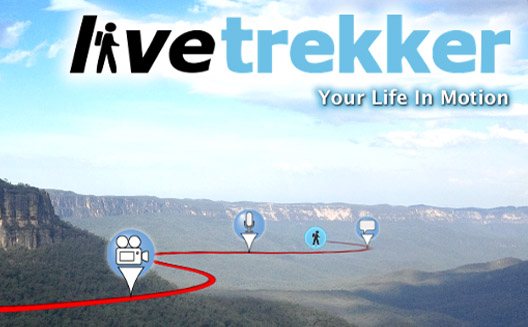Will this French startup attract Arab travelers with its trip recording app?


Though it’s been tried by Arab companies before, and failed, French startup Trekea Media, Inc. is expanding their real-time mobile travel recording app LiveTrekker to the Arab world.
With a rapidly expanding mobile, and smartphone, market in the Arab world, startups continue to look to the region as a priority for expanding their customer base.
Now, Paris-based company Trekea Media, Inc. hopes that their new Arabic version of smartphone app LiveTrekker, which launched just last month, will attract Arab travelers, both inside and outside of the region.
LiveTrekker enables travelers to document their journey via their smartphone by relying on a Google Maps-style GPS tracker that records their path and lets users upload, and share comments, pictures and videos along the way. The map records a traveler’s path in real-time, allowing friends and family to follow online as you move around a city.
“The Arab market is growing and maturing quickly, characterized by strong economic dynamism and a young population keen on acquiring new knowledge and contributing to the global society. Our aim here is to be a part of that dynamism and to help others to contribute to it,” says Jean-Marc DeBaud, LiveTrekker’s Executive Director.
LiveTrekker users can also benefit
from other users’ travel experience; the application recommends
popular tourist destinations and restaurants that other app
users have visited in the area. With this new version, the company
believes that users in the Arab world will constitute at least 20%
of the app’s global userbase.
What sets this app apart from other similar
trip trackers is the ability to use it offline; once you’re
reconnected to the internet, the app automatically uploads all of
the data it stored while disconnected.
But the Arab world has seen similar projects
before; one
attempt in particular, Jabbar’s Sawty, which was supposed to be
a web-based travel-sharing platform, never really took off.
Other apps like
Trip Journal Lite, MapQuest and Travelog are available
globally, but haven’t taken off in the region, possibly due to one
gap, which LiveTrekker is trying to fill: Arabic
functionality. Although DeBaud wouldn’t comment on their numbers,
he already considers the Arabic launch “a huge success,” but only
time will tell if he’s right; the app hasn’t even been available
for a month yet.
Apart from privacy concerns with a
live tracking app in the Middle East, another question pops into
mind: are there actually accurate enough maps available for the
whole Arab world? Much of the region’s restaurants and
destinations, especially outside of urban areas, remain unmarked on
Google Maps, though app users could possibly begin filling in the
gap by mapping new locations themselves. It’s a hurdle that
LiveTrekker’s team will have to overcome to make the mapping
meaningful for users in the region, but they remain confident in
their plans to continue growing and adapting to their new
market.
“Our goal is to give users the chance to record
important stages in their lives and share them with friends and
family in a safe way, so we are looking into more effective and
secure technologies as we grow,” says DeBaud.
The Arabic version of LiveTrekker is available for free on both iOS and Android.


